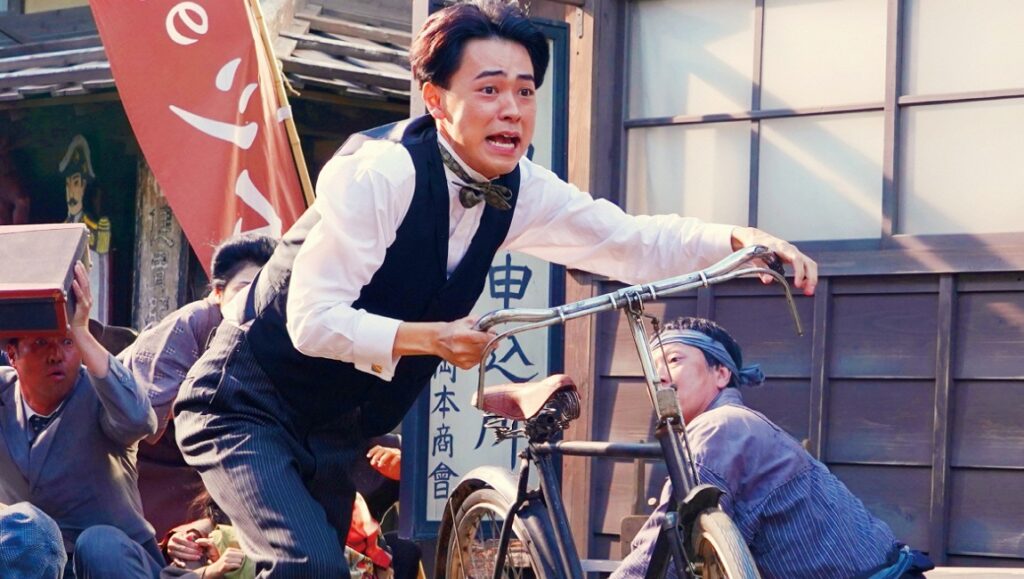They’re called “silent movies,” but for the most part, films preceding the advent of cinema sound recording weren’t really silent. Though there wasn’t on-screen dialog, screenings often had some sort of musical accompaniment or improvised sound effects, whether live or previously recorded. In Japan, this off-screen enhancement was taken a step further with the practice of including a benshi, a narrator who would explain the on-screen action, embellish narratives, and improvise dialog, employing different voices for different characters. Benshis had massive popularity, often eclipsing that of the stars of the films they narrated. Largely for this reason, the silent film era stretched well into the late 1930s in Japan, long after movies in the rest of the world had made the full transition to sound.
Masayuki Suo’s (Shall We Dance?) latest film, the very busy and strenuous comedy Talking the Pictures, pays affectionate, nostalgic tribute to this period of Japanese film history, lovingly recreating the milieu of this filmmaking and film-going era. The two principal characters meet cute as preteens; the boy, Shuntaro, is a rambunctious tyke, perpetrating petty theft with his gang of like-minded ruffians, while Umeko is a shy girl who mostly keeps to herself, probably because of a sense of shame toward her mother, a prostitute working from home. They sneak into a movie theater to catch a performance by a popular local benshi, and confide in each other their future ambitions; Shuntaro wants to be a benshi himself, while Umeko dreams of being an actress.
Cut to ten years later, and the adult Shuntaro (Ryo Narita) has fallen in with a band of thieves, who exploit his aspiring benshi skills to have Shuntaro impersonate popular benshis, distracting the people with a dazzling performance while the gang robs their homes. Shuntaro escapes from the gang, absconding with a suitcase full of their ill-gotten cash, and tries to become a real benshi, finding a job at an old, run-down movie house. Meanwhile, Umeko (Yuina Kuroshima) has indeed become an actress, but only in bit roles, and what’s worse, she’s expected to provide sexual favors to important men in order to advance her career.
Inevitably, Shuntaro and Umeko’s paths again cross, but not without complications that come courtesy of the absurd overpopulation of supporting characters Suo and screenwriter Shozo Katashima have piled onto this narrative, including the gang looking for their money, a movie-obsessed detective also in pursuit of Shuntaro, gangsters and their henchmen, a bitter, alcoholic washed-up benshi, a flashy, heartthrob benshi, and way too many others to list here. The broad, often slapstick humor is mildly pleasant to watch at first, but begins to grate over the course of an overlong two hour-plus runtime. The performers are game and high-spirited, and even though this film isn’t nearly as hilarious as it thinks it is, in the end it’s hard to hate too much on a production that’s so desperately eager to please.
Published as part of Japan Cuts 2021 — Dispatch 2.


Comments are closed.